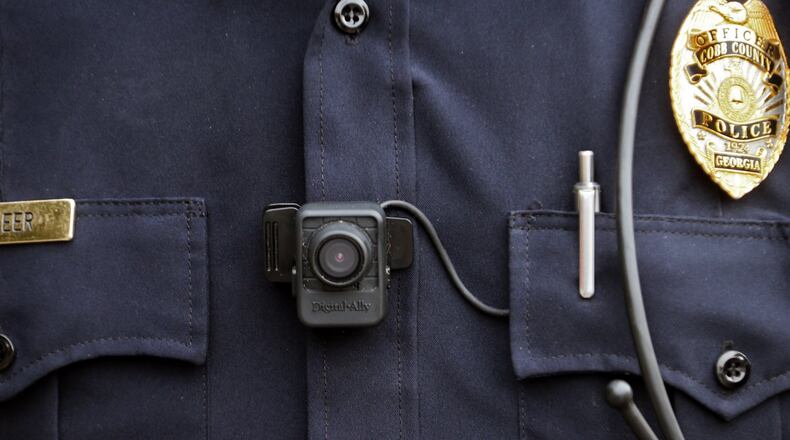Chances are the next time you're pulled over by a cop in Cobb County, a camera will be recording the officer's behavior. And yours.
Officials say a major purchase is underway for police body cameras. So the next time you're pulled over, watch what you say.
The increasing presence of these cameras raises all kinds of questions about public access to these videos.
Will your DUI video go viral?
Cobb County, which has about 450 uniformed officers, recently approved the purchase of another 100 cameras. The new cameras will cost $106,607. The additional server space and data storage cost $147,557.
Officials are promising more transparency on the part of law enforcement, and greater trust between cops and the community.
Over the past year, the urgency for body cameras has grown amid a national parade of tragedies between police and the public: ambush killings of officers in Dallas and Baton Rouge; controversial police-related deaths in Minneapolis and Milwaukee; riot squads squaring off with angry protesters.
Cobb County offers a glimpse into the future of police body cameras. County police have more cameras than just about any Atlanta area department. They started wearing them about two years ago, and now outfit about a third of patrol officers.
Beyond that, all 62 officers in the county’s schools wear body cameras, keeping an electronic eye on some 114,000 students in 116 schools. And some of the smaller city departments, such as Powder Springs and Smyrna, have cameras.
Cobb Patrol Officer Jarod Peer said he favors the body cameras. The 34-year-old Marine vet has been wearing a camera clipped to his dark blue uniform for about a month. He said it makes him feel more confident that, whatever happens, there is an accurate accounting of his police work.
“I don’t change my behavior because I’m on a camera,” said Peer, who works out of the 3rd Precinct around Vinings, Smyrna and Marietta.
Will body cameras usher in a new era of policing in metro Atlanta?
“I’m optimistic. We’re at a low point with some communities having faith in law enforcement,” said Frank Rotondo, executive director of the Georgia Association of Chiefs of Police.
“I think it will only help.”
But controversy exists. While encouraged by the potential of body cameras, Francys Johnson, the NAACP Georgia chapter president, said the devices hardly guarantee a level playing field between police and the public, or justice.
Police have been using dashboard cameras in patrol cars for years now. “The use of cameras has not prevented the crisis we are in now,” Johnson said.
He added, “If we don’t fix community-based policing and improve the relationship between police and the community, then all these body cameras will be doing is recording the deaths of more citizens at the hands of police.”
About the Author
Keep Reading
The Latest
Featured



